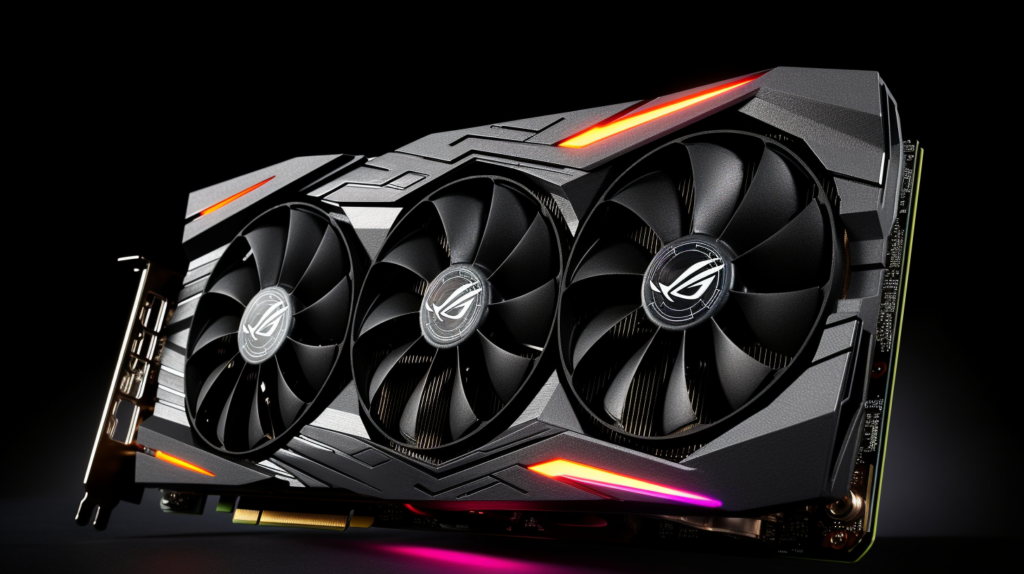So, its time for you to immerse yourself in new digital frontiers and join in with my likely unhealthy obsession with the absolute gems that the gaming world has to offer, and you’re wondering which gaming graphics card to choose? Selecting the right graphics card is a crucial decision that can significantly impact your gaming performance and actually how much you may or may not enjoy a particular title.
In this article, we will delve into the factors to consider when choosing a gaming graphics card, explore the NVIDIA vs. AMD debate, weigh the balance between budget and performance, and discuss the pros and cons of overclocking your gaming graphics card.
Summary Table
Before we dive into the details, let’s take a quick look at the key aspects of choosing a gaming graphics card:
Factors to Consider When Choosing a Gaming Graphics Card
Selecting the right gaming graphics card for you involves evaluating various factors. Imagine it’s like choosing a wand down diagon alley.
Here’s a list of considerations to keep in mind:
Performance Needs: Determine the level of gaming performance you require. Are you a casual gamer, or do you demand high-end, ultra settings gameplay?
Budget: Set a budget that aligns with your financial capacity. Graphics cards come in various price ranges, so it’s essential to find one that fits your budget.
Compatibility: Ensure that the graphics card you choose is compatible with your gaming rig, including your motherboard and power supply.
Resolution and Refresh Rate: Consider the resolution and refresh rate of your monitor. Higher resolutions and faster refresh rates may demand a more powerful graphics card.
Game Titles: The specific games you play also influence your choice. Some games require more graphical horsepower than others.
Future-Proofing: Think about how long you want your graphics card to remain relevant. Investing in a future-proof card can save you from frequent upgrades.
NVIDIA vs. AMD: Which Brand Is Better for Gaming?
NVIDIA and AMD are the two major players in the graphics card industry (and will likely be our overlords in years to come). Let’s break down their strengths and weaknesses for gaming:
NVIDIA:
- Known for its powerful and efficient GPUs.
- Offers features like ray tracing and DLSS for enhanced visuals.
- Great driver support and optimization for a wide range of games.
AMD:
- Competitive pricing, often provides excellent value for your money.
- Good performance and reliability.
- Supports technologies like FreeSync for smooth gameplay.
The choice between NVIDIA and AMD often comes down to personal preferences and specific gaming needs, in other words, take a lot of time browsing the wands.
Budget vs. Performance: Finding the Right Balance for Your Needs
Finding the right balance between your budget and gaming performance is essential. Here’s a list of tips to help you make the right choice:
Prioritize Key Components: If your budget is limited, allocate more of it to the graphics card and compromise on other components (but be aware of potential bottlenecks).
Consider Used or Previous-Gen Cards: You can often find excellent deals on used or older-generation graphics cards that offer solid performance.
Upgrade Path: Think about your future upgrade path. Spending a bit more now might save you from needing an upgrade sooner.
Review Benchmark Tests: Look at benchmark tests (like rally car tests for graphics cards) and reviews to compare the performance of different cards within your budget.
Overclocking Your Gaming Graphics Card: Pros and Cons
Overclocking your graphics card can provide a performance boost, and i strongly recommend you research it thoroughly before attempting to do so as it comes with its own set of pros and cons:
Pros:
- Increased gaming performance.
- Potential for smoother gameplay at higher settings.
- Cost-effective way to extend the life of your graphics card.
Cons:
- Risk of overheating and reduced card lifespan.
- Warranty voiding and potential for system instability.
- Requires careful monitoring and knowledge of safe overclocking limits.
Choosing the right gaming graphics card depends on your gaming needs, budget, and personal preferences.
Considering these factors and understanding the pros and cons of overclocking can help you make an informed decision in your journey to become a top hardware surgeon. Whether you opt for NVIDIA or AMD, aim for the right balance between budget and performance to ensure a smooth gaming experience that will provide longevity for years to come.
Enhance your gaming experience with top-notch graphics cards! Whether you’re in search of High-End performance or a Budget-Friendly option, we’ve got you covered:
MSI Gaming GeForce RTX 4090 24GB GDRR6X – Take your gaming to the next level with VR compatibility and outstanding performance.
ASUS TUF Gaming NVIDIA GeForce RTX™ 4070 Ti OC Edition – Dominate your games with this OC Edition gaming graphics card.
On a budget? Consider these options:
ZOTAC GeForce GTX 1660 Super 6GB GDDR6 – Get solid gaming performance without breaking the bank.
PowerColor Fighter AMD Radeon RX 6600 – Affordable and reliable, this graphics card is perfect for budget-conscious gamers.
By clicking on these affiliate links, you not only discover top-quality graphics cards but also help us continue to provide valuable content and recommendations on our website. Your support is greatly appreciated!
Browse At Your Leisure
Are you ready to take your gaming experience to the next level? Dive into the world of gaming graphics cards and explore the capabilities that can transform your gaming rig. If you’ve ever wondered about the potential risks, check out our article on whether a gaming graphics card can damage your motherboard here. Feel free to browse at your leisure and discover how to harness the full potential of your gaming setup.
